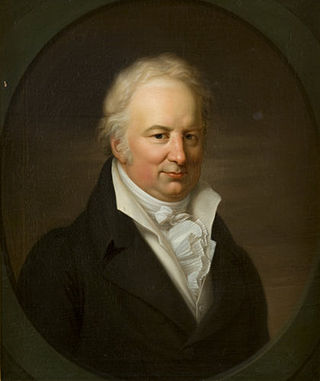
Karl August Böttiger was a German archaeologist and classicist, and a prominent member of the literary and artistic circles in Weimar and Jena.
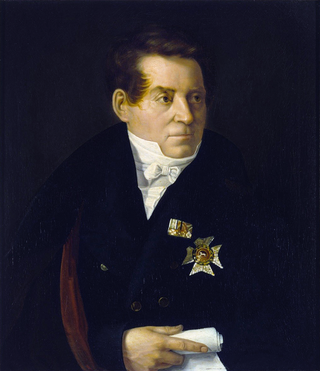
August WilhelmSchlegel, usually cited as August Schlegel, was a German Indologist, poet, translator and critic, and with his brother Friedrich Schlegel the leading influence within Jena Romanticism. His translations of Shakespeare turned the English dramatist's works into German classics. Schlegel was also the professor of Sanskrit in Continental Europe and produced a translation of the Bhagavad Gita.
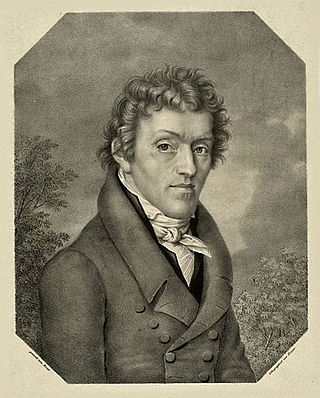
Georg Friedrich Creuzer was a German philologist and archaeologist.

Johann Michael Friedrich Rückert was a German poet, translator, and professor of Oriental languages.

Karl Friedrich Hermann was a German classical scholar and antiquary.
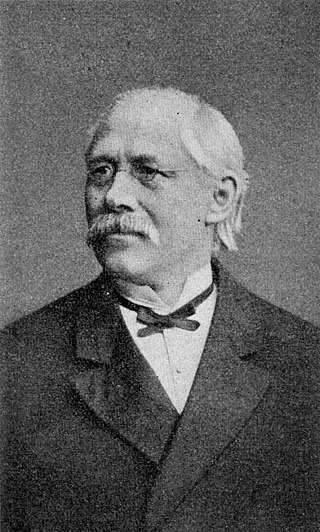
Friedrich Karl Theodor Zarncke, German philologist, was born in Zahrensdorf, Mecklenburg-Schwerin, the son of a country pastor.
Georg Benedikt Winer, German Protestant theologian, known for his linguistic studies of the New Testament. Theologically, Winer was an "anti-trinitarian".

Johann Wilhelm Schirmer was a German landscape artist born in Jülich, within the Prussian Duchy of Jülich.

Jean Paul was a German Romantic writer, best known for his humorous novels and stories.

Rudolf Friedrich Johann Heinrich Wagner was a German anatomist and physiologist and the co-discoverer of the germinal vesicle. He made important investigations on ganglia, nerve-endings, and the sympathetic nerves.
Gespräche mit Goethe is a book by Johann Peter Eckermann recording his conversations with Johann Wolfgang von Goethe during the last nine years of the latter's life, while Eckermann served as Goethe's personal secretary. It was first released in 1836 and substantially augmented in 1848.

Prof Karl (Carl) Theodor Ernst von Siebold FRS(For) HFRSE was a German physiologist and zoologist. He was responsible for the introduction of the taxa Arthropoda and Rhizopoda, and for defining the taxon Protozoa specifically for single-celled organisms.
The following is a list of the major publications of Johann Wolfgang von Goethe (1749–1832). 142 volumes comprise the entirety of his literary output, ranging from the poetical to the philosophical, including 50 volumes of correspondence.

Weimar Classicism was a German literary and cultural movement, whose practitioners established a new humanism from the synthesis of ideas from Romanticism, Classicism, and the Age of Enlightenment. It was named after the city of Weimar, Germany, because the leading authors of Weimar Classicism lived there.

Johann Gustav Stickel was a German theologian, orientalist and numismatist at Jena University.

Frédéric Soret was a Swiss private scholar in physics and Oriental numismatics.

Johann Wolfgang von Goethe was a German polymath and writer, who is widely regarded as the greatest and most influential writer in the German language. His work has had a profound and wide-ranging influence on Western literary, political, and philosophical thought from the late 18th century to the present day. Goethe was a German poet, playwright, novelist, scientist, statesman, theatre director, and critic. His works include plays, poetry and aesthetic criticism, as well as treatises on botany, anatomy, and color.
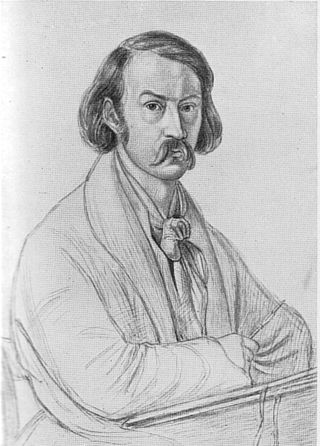
Friedrich Preller the Elder was a German landscape painter and etcher. From 1832 he was a professor at the Fürstlichen freien Zeichenschule in Weimar. He was the father of the artist Friedrich Preller the Younger.

Friedrich August Benjamin Puchelt was a German pathologist remembered for coining the term "perityphlitis" to describe inflammation of the right iliac fossa in 1832.

Gustav Adolf Schöll was a German art historian, archaeologist and classical philologist.

















